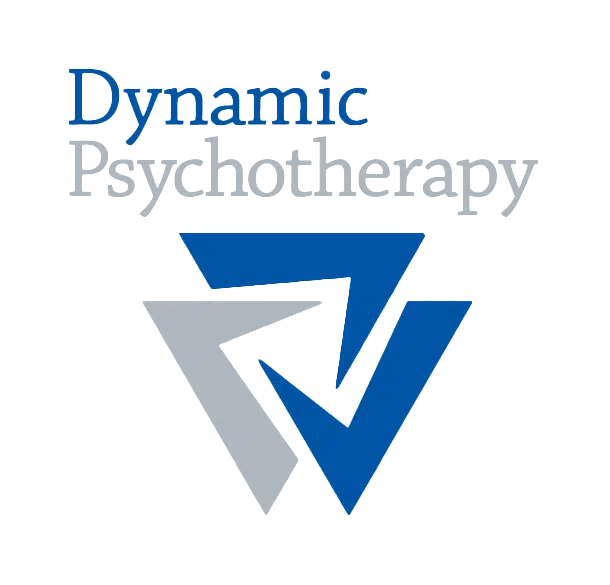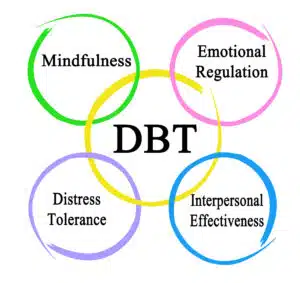DBT Therapists: an Overview of Dialectical Behaviour Therapy

Introduction to Dialectical Behaviour Therapy
What is DBT Therapy and Why It Matters
Dialectical Behavior Therapy, commonly known as DBT, is a form of psychotherapy. Developed by psychologist Marsha Linehan, it initially targeted borderline personality disorder. Over time, its scope has broadened to treat various mental health issues.
The Unique Blend of DBT Therapy
What sets DBT apart is its blend of cognitive-behavioral techniques and mindfulness strategies. This combination equips you with essential skills for emotional regulation and interpersonal effectiveness. It’s a holistic approach that addresses both your thoughts and emotions.
Core Principles of DBT Therapy
DBT operates on four core principles: Mindfulness, Emotional Regulation, Distress Tolerance, and Interpersonal Effectiveness. These pillars work in tandem to offer a comprehensive treatment plan tailored to your unique needs.
Who Benefits from DBT Therapy?
DBT is not just for those with severe mental health conditions. It’s also beneficial for individuals struggling with emotional regulation, interpersonal issues, and various mood disorders. Its versatility makes it a go-to choice for mental health treatment.
The Four Pillars of DBT Therapy Explained
Mindfulness: The Foundation of DBT Therapy
Mindfulness is the cornerstone of DBT therapy. It teaches you to be present in the moment, allowing you to better understand your thoughts and emotions. This awareness is crucial for emotional regulation and overall mental health.
Emotional Regulation: Mastering Your Feelings
Emotional regulation is another key aspect of DBT. It provides you with tools to manage intense emotions, reducing impulsivity and improving decision-making. Mastering your emotions is vital for a balanced life.
Distress Tolerance: Navigating Life’s Challenges
Life is full of ups and downs. Distress tolerance skills in DBT help you navigate these challenges without resorting to destructive behaviours. It’s about building resilience and learning to cope effectively.
Interpersonal Effectiveness: Building Healthy Relationships
Interpersonal effectiveness is the final pillar of DBT. It focuses on improving your communication skills and building meaningful relationships. Whether it’s with family, friends, or coworkers, these skills are essential for a fulfilling life.
How DBT Therapy Differs from Traditional Therapies
A Multi-Pronged Approach
DBT therapy stands out for its multi-pronged approach. Unlike traditional therapies that may focus solely on talk therapy, DBT incorporates skills training, individual psychotherapy, and even phone coaching. This comprehensive approach ensures that you receive well-rounded treatment.
The Role of Mindfulness
While many therapies incorporate some form of mindfulness, it’s a cornerstone in DBT. This focus on mindfulness allows for a deeper understanding of one’s emotional landscape, making DBT particularly effective for emotional regulation.
Skills Training: A Unique Feature
Skills training is a distinctive feature of DBT. It equips you with practical tools for emotional regulation, distress tolerance, and interpersonal effectiveness. These skills are not just theoretical but are designed for real-world application.
DBT’s Positive Impact on Therapists
One often overlooked aspect of Dialectical Behavior Therapy is its transformative effect on therapists themselves. DBT’s structured approach and evidence-based techniques not only benefit the patients but also empower the therapists. It equips them with a robust set of tools that can be applied in various therapeutic scenarios, enhancing their versatility and skill set.
Moreover, DBT fosters a culture of ongoing learning and professional development. Therapists engaged in DBT often participate in consultation teams, which serve as a platform for peer support and knowledge exchange. This collaborative environment helps therapists to continually refine their skills, stay updated on the latest research, and combat professional burnout.
Who Should Consider DBT Therapy?
DBT therapy for Borderline Personality Disorder
Dialectical Behavior Therapy (DBT) has proven to be particularly effective for individuals diagnosed with Borderline Personality Disorder (BPD). Initially designed to treat this specific disorder, DBT addresses the emotional volatility, impulsivity, and relationship instability often associated with BPD. It provides a structured and evidence-based approach to treatment. The therapy focuses on teaching coping mechanisms that help manage emotional swings and reduce conflict in relationships. Moreover, DBT offers skills in mindfulness and emotional regulation, which are crucial for individuals with BPD to gain a better understanding of their emotions and actions. With a qualified DBT therapist, those suffering from BPD can embark on a journey toward a more balanced and fulfilling life.
DBT for Emotional Regulation
If you struggle with managing your emotions, DBT could be the right fit for you. The therapy offers a set of tools that help you understand, express, and regulate your emotions more effectively.
A Versatile Treatment Option
DBT’s versatility makes it suitable for treating various issues beyond severe mental health conditions. Whether you’re dealing with stress, anxiety, or interpersonal difficulties, DBT offers a tailored approach to treatment.
When to Seek DBT Treatment
If you find that emotional ups and downs are affecting your quality of life, or if you’re struggling with interpersonal relationships, it might be time to consider DBT. Consult a qualified DBT therapist for an assessment to determine if this treatment is right for you.
The Structure of a DBT Program
A Comprehensive Treatment Plan
DBT programs are structured to offer a comprehensive treatment plan. They typically consist of individual therapy sessions, group skills training, and phone coaching for crisis situations.
Individual Therapy: A Personalized Approach
In individual therapy, you work one-on-one with a trained DBT therapist. These sessions are tailored to your specific needs, focusing on behavioural targets and emotional regulation.
Phone Coaching: Support When You Need It
DBT programs often include phone coaching for those times when you need immediate support. Whether you’re facing a crisis or just need some guidance, your therapist is just a call away.
Consultation Team: Therapist Support
DBT also includes a consultation team to support the therapist. This ensures that the therapist remains effective and motivated, enhancing the overall quality of the treatment.
Is DBT Therapy Effective
Dialectical Behavior Therapy (DBT) has been rigorously studied and found to be effective in treating a variety of psychological issues, including substance use disorders. A meta-analysis published in 2020 examined six between-groups studies focused on DBT for reducing substance use symptoms. The findings revealed that DBT was superior to alternative treatments and waitlist groups in the remission of substance use symptoms or an increase in substance use abstinence.
DBT Therapy: Evidence-Based Effectiveness
Interestingly, when the analysis was restricted to studies conducted in the United States, the results showed significant differences between DBT and comparison groups, further strengthening the evidence for DBT’s effectiveness. The study concluded that DBT is an effective approach for treating substance-related issues, as evidenced by both post-treatment and follow-up assessments.
In another study published in the Journal of Child Psychology and Psychiatry, DBT was found to be effective in reducing self-harm in adolescents. Similarly, a study in JAMA Psychiatry highlighted the effectiveness of DBT in treating borderline personality disorder.
The ScienceDirect article also supports the effectiveness of DBT, particularly in treating borderline personality disorder and reducing suicidal behavior.
Key Takeaways
- DBT shows promising results in treating substance use disorders.
- The therapy is also effective for other psychological issues like self-harm and borderline personality disorder.
- Multiple studies and meta-analyses support the effectiveness of DBT.
So, if you’re considering a treatment option for psychological issues, DBT stands as a well-researched and effective choice.
Backed by Research
DBT is not just another therapy fad; it’s a treatment backed by extensive research. Multiple studies have shown its effectiveness in reducing suicidal behaviors, improving social adjustment, and even treating substance dependence.
Real-World Applications
The skills you learn in DBT are not just theoretical; they have real-world applications. Whether it’s managing your emotions or improving your interpersonal relationships, DBT equips you for the challenges of everyday life.
Long-Term Benefits
One of the standout features of DBT is its long-term benefits. The skills you acquire are not just for immediate relief but are designed to serve you in the long run. It’s about building a sustainable, balanced life.
Preparing for Your First DBT Session
Setting Expectations
Before you walk into your first DBT session, it’s important to set realistic expectations. Understand that therapy is a process, and significant changes won’t happen overnight.
What to Bring
Come prepared with a list of issues you’d like to address. Whether it’s emotional regulation or interpersonal difficulties, having a clear agenda will make your session more productive.
Openness is Key
Therapy works best when you’re open and honest. Our DBT therapists is there to help, not judge. The more transparent you are, the more tailored your treatment plan will be.
Confidentiality Assured
Rest assured that everything discussed in your DBT session is confidential. This secure environment fosters trust and encourages open communication.
Our DBT Therapists

David Temme
David is a seasoned therapist with a strong focus on DBT Therapy. His extensive training and hands-on experience make him an expert in treating a wide range of mental health conditions, including PTSD and anxiety disorders. David’s empathetic approach ensures that you feel comfortable and supported throughout your treatment journey.
Specialisations:
David specialises in providing treatment for symptoms of trauma, depression, anxiety, PTSD, borderline personality and other personality disorders with EMDR & Schema Therapy
Approach:
EMDR Therapy, Schema Therapy, Behavioural Therapies, DBT Therapy, Psychodynamic Therapy & CBT
Qualifications:
Social Worker And Psychotherapist

Moulya
Having worked in a culturally diverse setting across countries, Moulya’s interventions are tailored to suit the needs of the individual and is informed by ISTDP, CBT, ACT and DBT approaches. She strongly believes that an empathetic stance, genuineness, and collaborative approach can have a profound effect in tapping into their deepest potential and transforming themselves.
Specialisations:
Assessments for: ADHD, ASD IQ and Learning Disorders. Emotional & Behavioural Disorders in children. Adolescent/Adult Personality & Mental Health Assessments
Approach:
ISTDP, DBT, CBT, ACT & Mindfulness
Qualifications:
MSc, MPhil (Clin Psych), MAPS, AMACPA

Susanna Sibillin
Susanna is passionate about helping individuals reclaim their lives from the grip of mental health conditions. Her expertise in DBT Therapy is complemented by her warm and nurturing demeanour, creating a safe space for you to explore and heal. Susanna specialises in treating conditions like depression and phobias, employing EMDR techniques that offer lasting relief.
Specialisations:
Interpersonal Difficulties, Trauma (including childhood trauma and family violence), Addiction & Eating Disorders
Approach:
EMDR Therapy, Schema Therapy, DBT, CBT & ACT
Qualifications:
MPsych(Clin), MSW, PGDip
What to Expect During a Session with a DBT Therapist
The Structure of a Session
A typical DBT session starts with a review of the past week, focusing on any challenges you faced and how you applied your DBT skills. This is followed by skills training and setting goals for the upcoming week.
Skills Training in Action
During the session, you’ll engage in skills training, which is a core component of DBT. This involves practical exercises that help you apply the skills you’ve learned to real-world situations.
Goal Setting: A Forward-Looking Approach
Each session concludes with goal setting. These goals are tailored to your unique needs and challenges, providing a roadmap for the week ahead.
Homework Assignments
Yes, there’s homework in DBT! These assignments help reinforce the skills you’ve learned during the session, ensuring that you’re continually practising and improving
The Role of Family and Friends in DBT Therapy
A Supportive Network
Family and friends play a crucial role in the success of DBT treatment. Their support can make a significant difference in how effectively you apply the skills learned during therapy.
Involvement in Treatment
Some DBT programs offer family therapy sessions or involve family members in skills training. This not only educates your loved ones about DBT but also equips them to support you better.
Setting Boundaries
While support is essential, setting healthy boundaries is equally important. DBT can help you and your loved ones establish boundaries that respect each other’s autonomy while fostering a supportive environment.
Communication is Key
Open communication with your support network can enhance the effectiveness of DBT. It allows for a mutual understanding of the challenges you’re facing and how best to navigate them.
Overcoming Challenges in DBT Therapy
Facing Resistance
It’s natural to encounter resistance when undergoing any form of therapy, including DBT. Acknowledging this resistance is the first step toward overcoming it.
The Role of the Therapist
Our DBT therapists are trained to help you navigate these challenges. Through a combination of validation and gentle confrontation, they guide you toward a more adaptive behaviour.
Self-Compassion: A Vital Skill
DBT teaches you the skill of self-compassion, which is crucial when facing setbacks. It allows you to treat yourself with the same kindness and understanding you’d offer a friend.
Celebrating Small Wins
Progress in therapy is often incremental. Celebrating small wins can boost your motivation and keep you committed to the treatment process.
Conclusion and Next Steps
The Journey Ahead
Embarking on a DBT journey is a commitment to long-term well-being. It’s not a quick fix but a structured path that requires dedication and effort. With the right mindset and a qualified DBT therapist, you can navigate the complexities of your emotional landscape and achieve a more balanced life.
Continuous Learning in DBT Therapy
The skills you acquire in DBT are not just for the duration of the therapy; they are life skills. These tools, once learned, need continuous practice and application. The more you apply them in real-world situations, the more ingrained they become, helping you maintain the benefits of the treatment long after the sessions have ended.
Reach Out for Support
If you or someone you know is grappling with emotional regulation, interpersonal difficulties, or other mental health challenges, DBT could be the answer. A qualified DBT therapist can provide a tailored treatment plan that addresses your specific needs. The first step is often the hardest, but it’s also the most crucial.
Take the First Step Today
There’s no perfect moment to start improving your mental health. The best time is now. Taking that first step to schedule a DBT session can set you on a path to a more balanced and fulfilling life. It’s an investment in your future well-being and an opportunity to live a more enriched life.
Additional Resources for DBT Therapy
Navigating the world of mental health can be overwhelming, but you don’t have to go it alone. There are numerous free resources available to help you on your DBT journey. Whether you’re looking for worksheets, self-help guides, or comprehensive information, these websites have got you covered.
Therapist Aid
This platform offers a variety of DBT worksheets that can complement your therapy sessions. From emotional regulation to distress tolerance, you’ll find practical tools to enhance your DBT skills.
Positive Psychology
Positive Psychology provides an in-depth look at DBT, including its history, principles, and applications. The site also offers free exercises and worksheets to help you practice the skills you learn in therapy.
DBT Self Help
This website is a treasure trove of self-help resources. It features articles, videos, and exercises that can help you understand and apply DBT principles in your daily life.
Dialectical Behavior Therapy
This site offers a comprehensive guide to DBT, including its history, core principles, and how it differs from other forms of therapy. It’s a great starting point for anyone new to DBT.
DBT Tools
DBT Tools provides a range of resources, including worksheets, handouts, and exercises, to help you practice DBT skills. The site is user-friendly and offers materials that are easy to download and use.
Disclaimer
We Are Not Responsible for websites we link to. Please be aware that we have no control over the content of these websites or resources. The content may change, and we are not responsible for any alterations, or the reliability of the information provided.
Frequently Asked Questions About DBT Therapy
1. What is Dialectical Behavior Therapy (DBT)?
Dialectical Behavior Therapy, or DBT, is a form of psychotherapy that combines cognitive-behavioral techniques with mindfulness practices. It was initially designed to treat borderline personality disorder but has since been adapted for various other mental health conditions.
2. Who can benefit from DBT?
While DBT was originally developed for individuals with borderline personality disorder, its applications have expanded. It’s now used for treating a range of issues including emotional dysregulation, mood disorders, and interpersonal difficulties.
3. What are the core principles of DBT?
DBT operates on four core principles: Mindfulness, Emotional Regulation, Distress Tolerance, and Interpersonal Effectiveness. These pillars work together to provide a comprehensive treatment plan tailored to individual needs.
4. How does DBT differ from traditional therapies?
DBT stands out for its multi-pronged approach. Unlike traditional therapies that may focus solely on talk therapy, DBT incorporates skills training, individual psychotherapy, and even phone coaching for crisis situations.
5. How long does it typically take to see results with a DBT therapist?
The duration for noticeable improvements through DBT therapy can vary from person to person, depending on the severity of their condition and their commitment to the treatment plan. However, many individuals report experiencing some level of improvement within a few weeks of consistent therapy and skills practice. It’s essential to discuss your progress and expectations with your DBT therapist for a more personalised timeline.
Request an Appointment
Ready to book an appointment with one of our DBT therapists? Use our appointment request form by clicking the button below.

